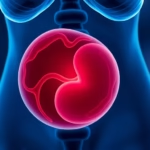We will be talking about can pain cause high blood pressure. Pain is a complex physiological and psychological response that can affect virtually every part of the body. High blood pressure, or hypertension, occurs when the force of blood against the artery walls is too high, which can lead to significant health issues over time. Several studies suggest that experiencing pain, whether acute or chronic, can lead to temporary increases in blood pressure. This phenomenon is due to the body’s natural stress response, which triggers the release of hormones such as adrenaline and cortisol. These hormones can cause an increase in heart rate and constrict blood vessels, leading to elevated blood pressure levels. Understanding the connection between pain and high blood pressure is essential, as it can help in managing both conditions more effectively and improve overall health outcomes.
The Relationship Between Pain and High Blood Pressure
Pain can trigger a stress response in the body, which affects cardiovascular health. The body’s reaction to pain includes releasing stress hormones that increase heart rate and blood pressure. This connection means that acute pain from injuries or chronic pain conditions can lead to temporary spikes in blood pressure. Understanding this relationship is crucial for individuals suffering from chronic pain, as they may be at an increased risk for developing hypertension over time. Managing pain effectively can thus be an essential component of maintaining a healthy blood pressure level.
Types of Pain and Their Impact on Blood Pressure
Different types of pain can have varying effects on blood pressure. For instance, acute pain from an injury or surgery can lead to a quick increase in blood pressure due to adrenaline release. Chronic pain conditions, such as arthritis or fibromyalgia, often result in prolonged stress responses, potentially leading to sustained high blood pressure levels. Understanding the type of pain one experience can provide insights into how it may impact cardiovascular health and drive care and management strategies.
Managing Pain to Control Blood Pressure
Effective pain management is essential for those struggling with high blood pressure. Techniques may include medications, physical therapy, exercise, and complementary therapies such as acupuncture or yoga. Medications such as NSAIDs can alleviate pain but need to be used cautiously, as some can negatively impact blood pressure. Engaging in regular exercise not only helps manage pain but also can improve overall cardiovascular health, keeping blood pressure levels in check. Ensuring proper management of pain can play a key role in controlling blood pressure.
Stress and Its Role in Pain and Blood Pressure
Stress is a significant factor contributing to both pain and high blood pressure. When experiencing stress, the body responds with a fight-or-flight reaction that increases both pain sensitivity and blood pressure levels. Chronic stress can lead to a cycle of pain leading to more stress, resulting in higher blood pressure. Identifying effective stress-reduction techniques, such as mindfulness, meditation, or deep breathing exercises, can help break this cycle, minimizing both pain and blood pressure spikes.
The Importance of Regular Health Check-Ups
Regular health check-ups are essential for monitoring pain and blood pressure levels. These visits allow healthcare providers to identify patterns in symptoms, discuss management strategies, and make necessary adjustments to treatment plans. During check-ups, healthcare providers can also assess the impact of pain on blood pressure and overall health, ensuring a holistic approach to care. Staying proactive about health through regular visits can aid in avoiding severe complications from both high blood pressure and pain conditions.
The Connection Between Medications and Blood Pressure
Many medications prescribed for pain management can influence blood pressure, either positively or negatively. Non-steroidal anti-inflammatory drugs (NSAIDs) can lead to water retention, which might increase blood pressure. On the other hand, certain pain management medications may help in lowering blood pressure as they treat underlying pain conditions. It’s crucial to discuss any medications with a healthcare professional to ensure the treatment plan aligns with blood pressure management goals.
Diet and Lifestyle Choices Impacting Pain and Blood Pressure
Diet and lifestyle choices significantly influence both pain and blood pressure. Consuming a balanced diet that is low in sodium and rich in fruits and vegetables can aid in maintaining healthy blood pressure. Moreover, certain foods, such as those rich in omega-3 fatty acids, may help reduce inflammation and pain. Engaging in regular physical activity can also support both pain relief and blood pressure guidelines. Therefore, making informed dietary and lifestyle decisions provides a comprehensive approach to managing pain and hypertension.
Seeking Professional Help for Pain Management
It is often necessary to seek professional help for chronic pain management, particularly when it overlaps with issues of high blood pressure. Healthcare providers, including pain specialists, psychologists, and dietitians, can provide targeted strategies and therapies to address pain effectively. A multidisciplinary approach can lead to better overall health outcomes, as all aspects of an individual’s pain and blood pressure can be managed in an integrated manner.
The Role of Mental Health in Pain Perception and Blood Pressure
Mental health plays a crucial role in how pain is perceived and managed, as well as its impact on blood pressure. Psychological conditions such as anxiety and depression can exacerbate pain symptoms, leading to increased blood pressure levels. Conversely, addressing mental health through counseling, therapy, or support groups can reduce the perception of pain and promote healthier blood pressure levels. It’s essential to consider the mental health aspect when talking about chronic pain and hypertension.
Final Conclusion
In conclusion, the relationship between pain and high blood pressure is multifaceted and interconnected. Pain can contribute to an increase in blood pressure through stress responses and hormonal reactions, while chronic pain conditions may put individuals at risk for sustained hypertension. Understanding the types of pain and their respective impact on blood pressure illustrates the necessity of effective pain management. Regular check-ups, dietary choices, and lifestyle modifications are key strategies to keep both pain and blood pressure in check. The interplay between stress, mental health, and physical conditions cannot be understated; addressing mental well-being is vital for comprehensive pain management. Ultimately, seeking professional help for both pain and hypertension, being proactive in regular health assessments, and applying holistic health approaches are critical steps towards improving health and wellness. For those navigating these challenges, a thorough understanding of how pain affects blood pressure can help inform better management practices and promote healthier lives.
Frequently Asked Questions
1. Can chronic pain lead to high blood pressure?
Yes, chronic pain can lead to high blood pressure due to the stress response associated with persistent discomfort, which may increase heart rate and blood pressure levels.
2. Do pain medications affect blood pressure?
Some pain medications, particularly NSAIDs, can increase blood pressure through mechanisms like fluid retention. It’s essential to discuss medication effects with a healthcare provider.
3. Can managing pain help lower blood pressure?
Effectively managing pain can decrease stress and improve overall health, potentially leading to lower blood pressure levels, particularly if the pain is chronic.
4. What lifestyle changes can help manage pain and blood pressure?
Regular exercise, a balanced diet low in sodium, stress management techniques, and avoiding smoking can all contribute to managing pain and blood pressure together.
5. Should I seek professional help for pain management?
Yes, consulting with healthcare professionals for pain management is essential, especially when managing high blood pressure. They can provide tailored strategies and treatment plans.
Further Reading
3.5 tog sleeping bag temperature guide
What Type of Psychotherapy Is Best for Anxiety?







